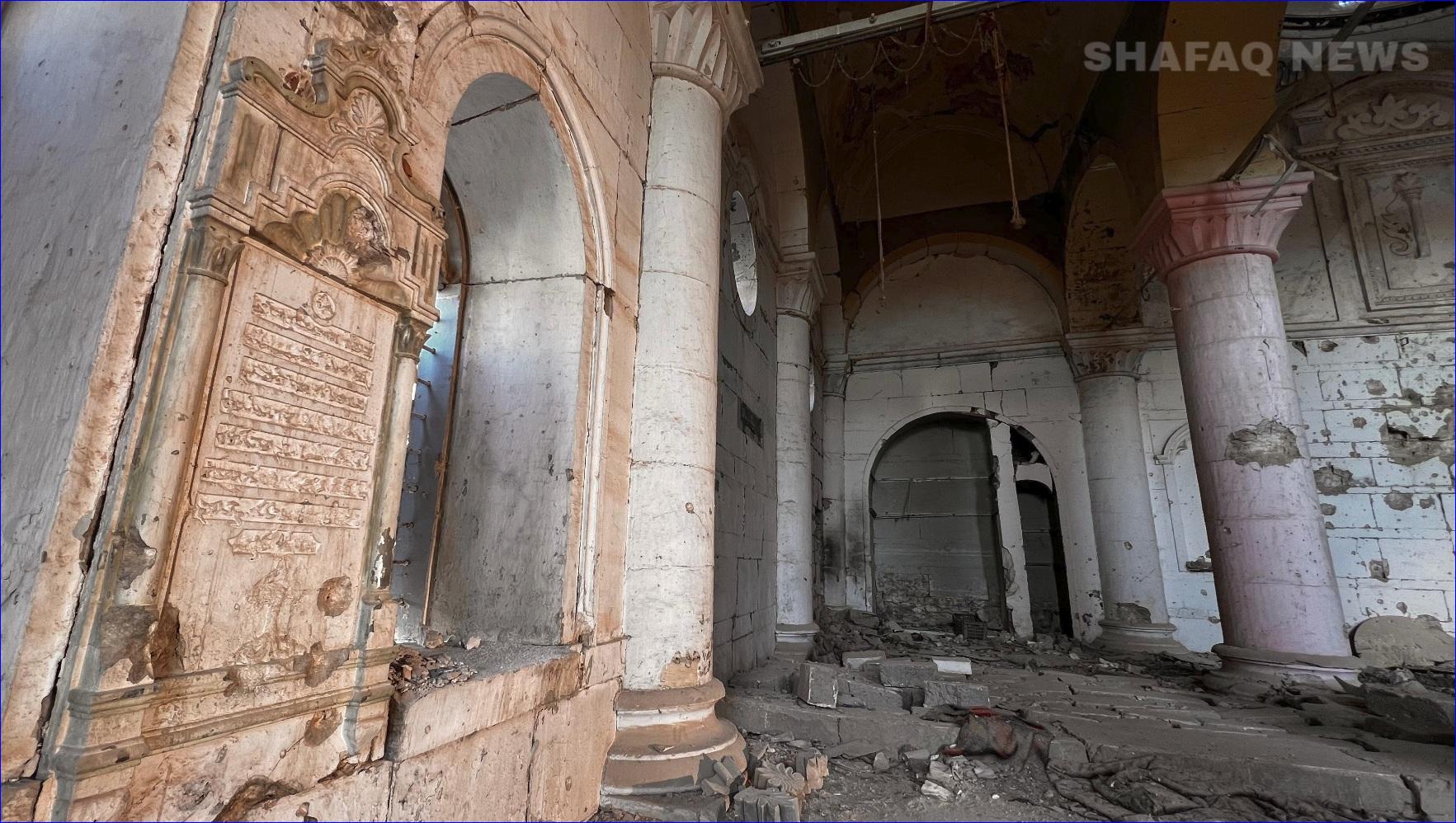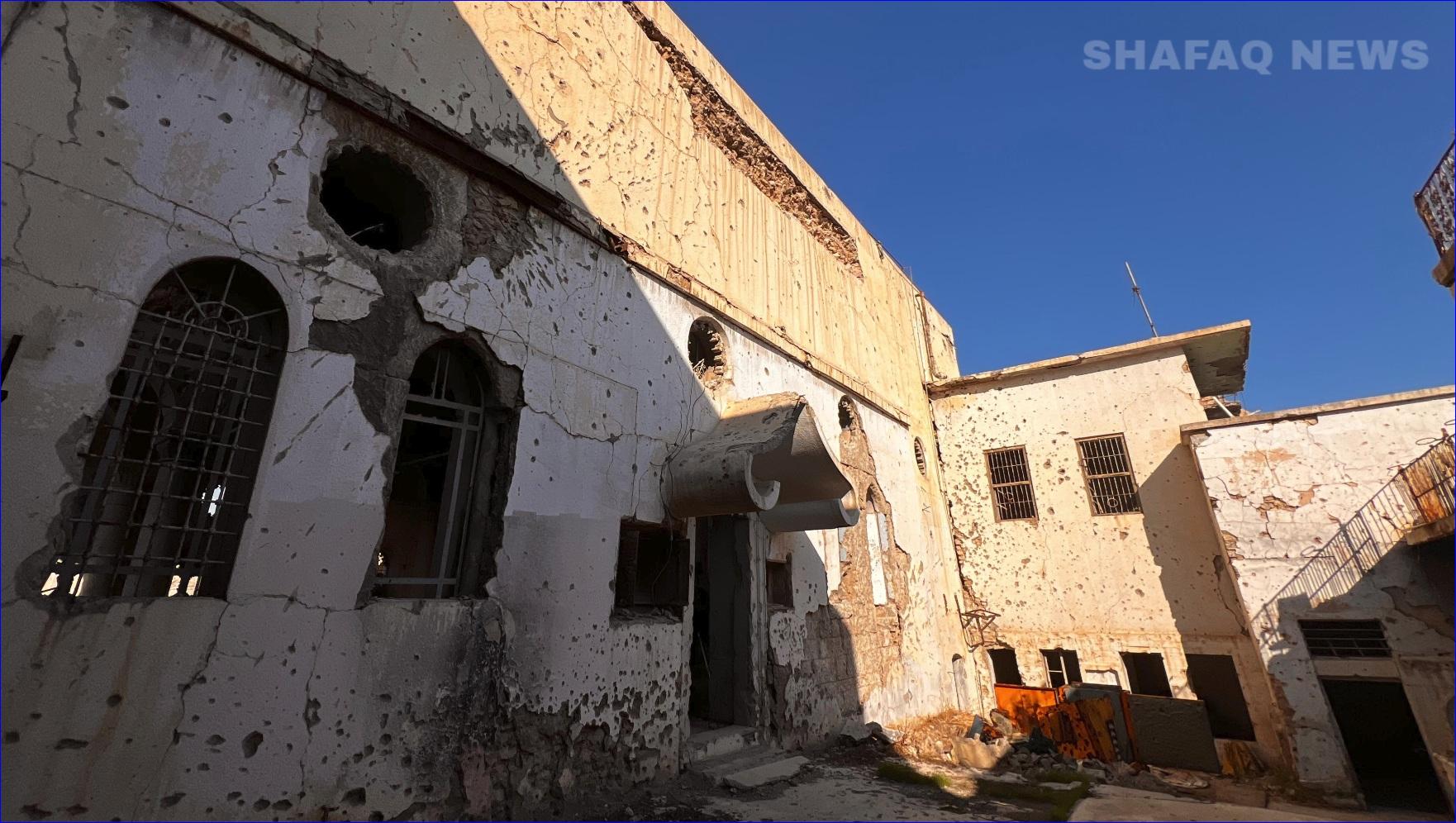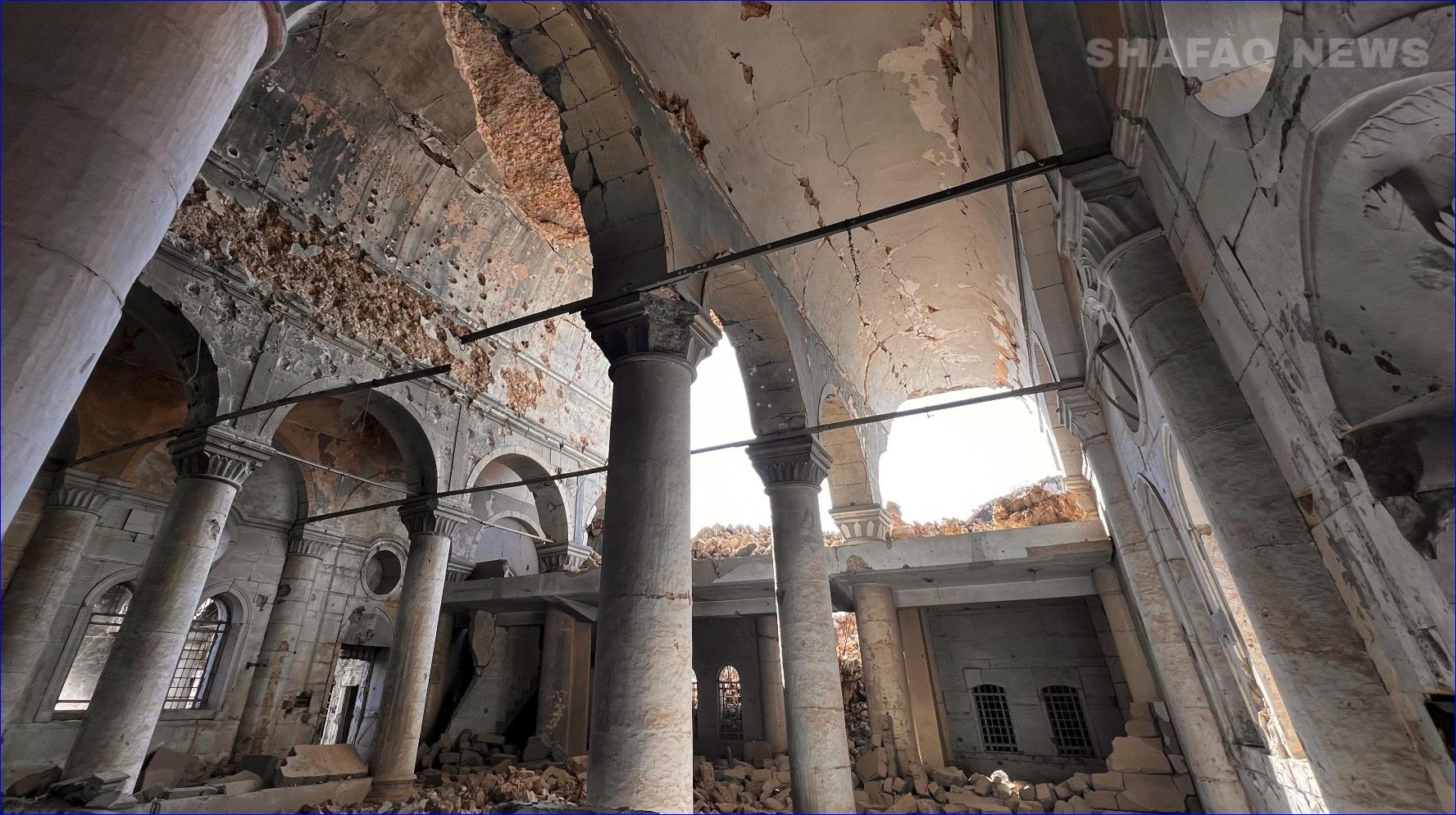


This slow pace of reconstruction has left many Christian families hesitant to return.
A Community Devastated
Priest Raed Adel, who oversees Mosul's churches, detailed the extent of the destruction. "The number of churches completely or partially destroyed in central Mosul, excluding the plains and outskirts, is 35. Only a few have been partially rebuilt," he told Shafaq News.
Related: Church Bombings in Iraq Since 2004
"Since the transformations Iraq has gone through, particularly during ISIS's control, Christians have been heavily targeted. Churches and places of worship were burned, properties destroyed, and families forcibly displaced," Adel said.
"The Christian population in Mosul dropped from 50,000 to just 3,000 by 2014, and after that, no Christians remained in the city," he added.
While some families have returned since ISIS's defeat in 2017, their numbers remain minimal.
"Today, only 60 to 70 Christian families are left in Mosul. Many more want to return but need sincere support from the government and international organizations," Adel emphasized.
Related: Timeline of ISIS in Iraq
Related: Attacks on Assyrians in Syria By ISIS and Other Muslim Groups
Iraq's Christian population, which exceeded 1.5 million two decades ago, has now dwindled to fewer than 250,000. The US Commission on International Religious Freedom attributes this decline to targeted violence, political instability, and a lack of governmental support.
UNESCO's Role in Restoring the Houshal-Bai'ah Complex
The Housh al-Bai'ah, a complex that includes churches of the Syriac Catholic, Syriac Orthodox, Armenian Orthodox, and Chaldean Catholic traditions, has seen minimal reconstruction. The one church, however, that has seen reconstruction, is the Church of al-Tahera for Syriac Catholics, which was restored as part of UNESCO's Revive the Spirit of Mosul Initiative. The Church of al-Tahera has been fully rebuilt with support from UNESCO and funding from the UAE. The Pope even prayed there during his visit to Iraq.

UNESCO's Revive the Spirit of Mosul Initiative, launched in 2018, aims to rebuild key cultural landmarks destroyed during the war with ISIS. While the UAE has provided critical funding, the organization remains dependent on international donations to expand its scope.
However, Ayoob Thanoon, head of the Mosul Heritage Foundation and ambassador for UNESCO's initiative, clarified that the project still has some limitations.
"The restoration of al-Tahera was completed three months ago, but there is no funding to rebuild the other churches in the Houshal-Bai'ah complex," Thanoon said.
UNESCO's efforts have also extended to other prominent landmarks, including the Dominican Monastery of Our Lady of the Hour, which was restored in April 2024. However, financial constraints remain a significant barrier to further progress.
"UNESCO operates based on the funding it receives," explained Rakan al-Allaf, UNESCO's director in Mosul. "The UAE's financial contributions were allocated to rebuilding the al-Nuri Mosque and its leaning minaret, and the al-Tahera Church, which is over 250 years old. But we have no funding for the Syriac Orthodox Church of al-Tahera, the Armenian Orthodox Church, or the Old al-Tahera Church."
Challenges and Hope for the Future
While UNESCO has drawn up plans to restore these churches, no country has offered the necessary financial support yet.

"We've prepared a program to reconstruct and restore these churches, but no grants have been provided to start the work," al-Allaf said.
Mosul's Houshal-Bai'ah Churches struggle to recover from ISIS destruction
Shafaq News/ The historic churches of Houshal-Bai'ah in Mosul are grappling with significant neglect, with only one of them having been fully restored. Despite their cultural and religious importance to the region, many of these churches remain in disrepair.
Father Raed Adel, the head of Christian churches in Mosul, told Shafaq News that 35 churches, monasteries, and Christian worship centers were either partially or completely destroyed in central Mosul, not including the surrounding areas. Only a few have been partially rebuilt.
Father Adel explained that the targeting of Christians escalated after ISIS took control of Mosul, with churches burned, Christian properties destroyed, and families forced to flee. As a result, the Christian population in the city dropped from 50,000 in 2014 to just 3,000, with no Christians remaining in Mosul after the militant group's occupation.
"Some displaced Christians have returned to Mosul after 2017, but everything was in ruins," Father Adel added. "It wouldn't be difficult for Christian families to return if the government and international organizations provide real support."
Currently, only 60-70 Christian families remain in Mosul, with more families expressing interest in returning, contingent on government provisions.
UNESCO initiatives in Mosul's restoration efforts
UNESCO has played a significant role in the restoration of Mosul's cultural heritage, focusing on the city's historic churches and landmarks. One of the major achievements was the full restoration of the Church of Al-Tahera, a Syrian Catholic church in the Houshal-Bai'a hcomplex, which was completed with the support of the UAE. This church, a symbol of Mosul's Christian heritage, was also the site of a historic prayer led by Pope Francis during his visit to Iraq.
In 2021, in collaboration with the Ministry of Culture and the Christian Endowment Bureau, UNESCO drafted plans for rebuilding the Church of Al-Tahera to its original state, following its destruction by ISIS. This restoration was part of UNESCO's broader initiative, "Reviving the Spirit of Mosul," which aims to preserve and restore the city's cultural landmarks.
However, other churches in the complex have not received similar attention. Ayoub Dhonon, head of the Mosul Heritage Foundation and UNESCO's Mosul Spirit Ambassador, stated that while there was financial support for Al-Tahera's restoration, no funding has been allocated for the other churches in Houshal-Bai'ah.
Al-Tahera Church is the second major landmark rebuilt by UNESCO, following the completion of the restoration of the Dominican Fathers' Monastery of Our Lady of the Hour in April 2024.
Rakan al-Alaf, UNESCO's representative in Mosul and supervisor of the restoration of the Great Al-Nuri Mosque, the Al-Hadba Minaret, and the churches of the Hour and Al-Tahera, explained that UNESCO operates according to available international funding.
"The financial support from the UAE has been designated for rebuilding Al-Nuri Mosque, the Al-Hadba Minaret, and the 250-year-old Al-Tahera Church, all of which have been fully restored," said al-Alaf.
However, he confirmed that UNESCO has yet to receive funding to restore the Syrian Orthodox Church of Al-Tahera, the Armenian Church, and the ancient Al-Tahira Church located at the intersection of Nabi Korkis Street and the Nineveh Road in the heart of Old Mosul.
UNESCO has outlined a program for the restoration and repair of these churches but has not yet received any financial contributions from other nations to proceed with the work.

or register to post a comment.